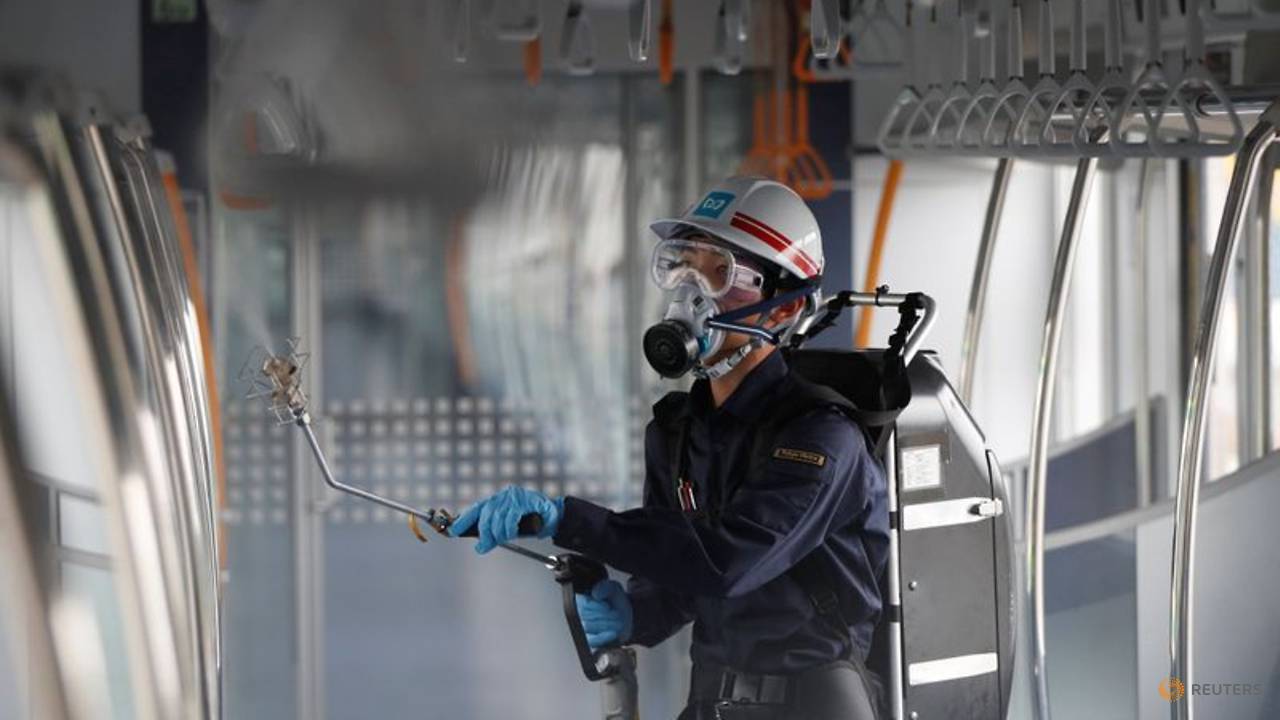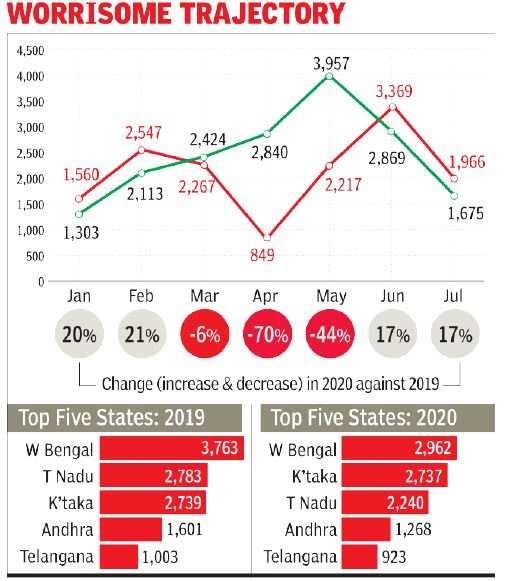TOKYO: As global public transport operators look for ways to keep the coronavirus at bay on planes, trains and buses, one of Japan's biggest rail firms is betting on the anti-microbial properties of silver to keep passengers safe on the world's busiest subway.
Tokyo's labyrinthine rail network of about 900 stations and roughly 85 lines has seen passenger numbers approach pre-virus levels since the city's de facto lockdown was lifted in late May.
Advertisement
Advertisement
A sticker informing passengers about the task of anti-virus and bacteria coating procedures are displayed inside a railway car in Tokyo. (Photo: Reuters)
This raises the risk of transmission via high-contact points such as hand straps, hand rails and seats, just as the city's number of new cases of COVID-19 infection is rising again.
READ: Tokyo COVID-19 cases hit record daily high of 224: Report
Tokyo Metro, the city's main subway operator, has begun spraying its nearly 3,000 cars with a super-fine atomisation of a silver-based compound, taking advantage of silver's anti-antimicrobial properties to repel the virus from surfaces.
Advertisement
Advertisement
"Merely disinfecting the carriages only has a short-term effect, so we were looking for an anti-microbial application to reassure passengers that our trains are safe," Masaru Sugiyama, Tokyo Metro's section chief in charge of rolling stock, said at a demonstration on Thursday.
After the end of daily operations, masked cleaners hauling motorised atomisers stride through carriages, spraying straps, poles, seats and windows with a mist of 10 micron droplets, roughly the size of a grain of pollen.
An employee of the Tokyo Metro sprays chemicals for anti-virus and bacteria coating in order to prevent infections following the COVID-19 outbreak in Tokyo. (Photo: Reuters)
Tokyo Metro said the anti-microbial compound has been shown to be effective against viruses including influenza and E-coli, though has not yet been proven to repeRead More – Source
TOKYO: As global public transport operators look for ways to keep the coronavirus at bay on planes, trains and buses, one of Japan's biggest rail firms is betting on the anti-microbial properties of silver to keep passengers safe on the world's busiest subway.
Tokyo's labyrinthine rail network of about 900 stations and roughly 85 lines has seen passenger numbers approach pre-virus levels since the city's de facto lockdown was lifted in late May.
Advertisement
Advertisement
A sticker informing passengers about the task of anti-virus and bacteria coating procedures are displayed inside a railway car in Tokyo. (Photo: Reuters)
This raises the risk of transmission via high-contact points such as hand straps, hand rails and seats, just as the city's number of new cases of COVID-19 infection is rising again.
READ: Tokyo COVID-19 cases hit record daily high of 224: Report
Tokyo Metro, the city's main subway operator, has begun spraying its nearly 3,000 cars with a super-fine atomisation of a silver-based compound, taking advantage of silver's anti-antimicrobial properties to repel the virus from surfaces.
Advertisement
Advertisement
"Merely disinfecting the carriages only has a short-term effect, so we were looking for an anti-microbial application to reassure passengers that our trains are safe," Masaru Sugiyama, Tokyo Metro's section chief in charge of rolling stock, said at a demonstration on Thursday.
After the end of daily operations, masked cleaners hauling motorised atomisers stride through carriages, spraying straps, poles, seats and windows with a mist of 10 micron droplets, roughly the size of a grain of pollen.
An employee of the Tokyo Metro sprays chemicals for anti-virus and bacteria coating in order to prevent infections following the COVID-19 outbreak in Tokyo. (Photo: Reuters)
Tokyo Metro said the anti-microbial compound has been shown to be effective against viruses including influenza and E-coli, though has not yet been proven to repeRead More – Source











